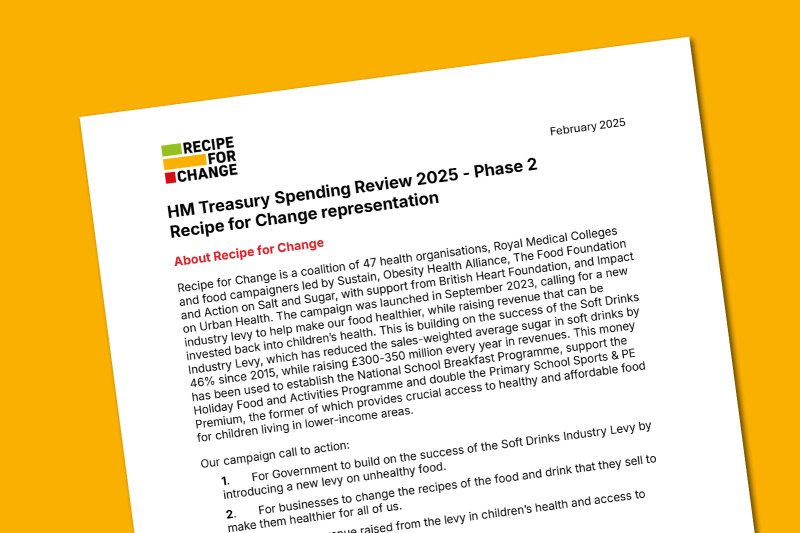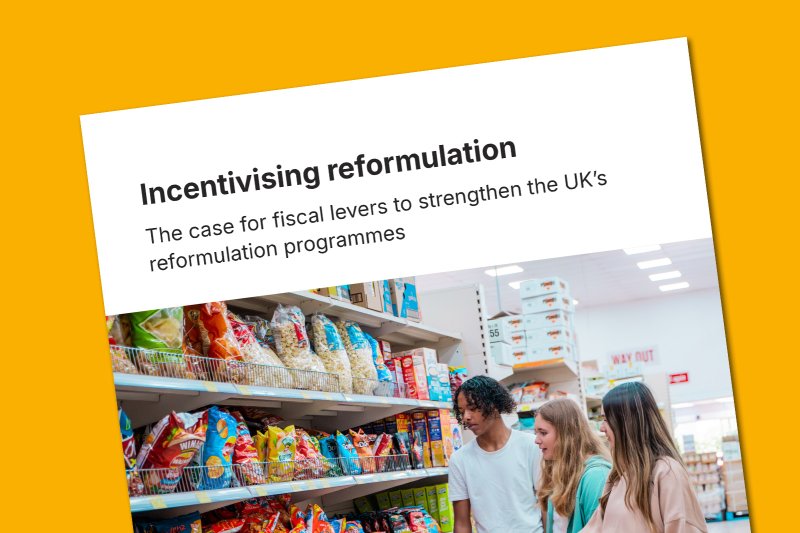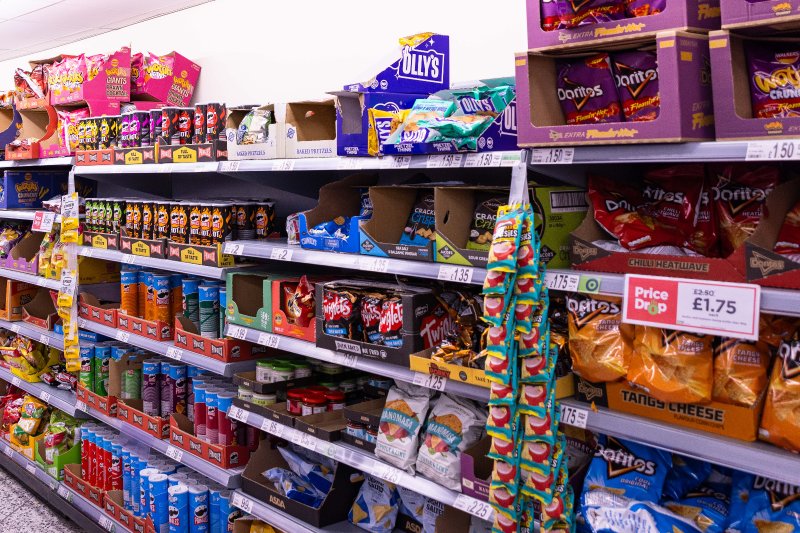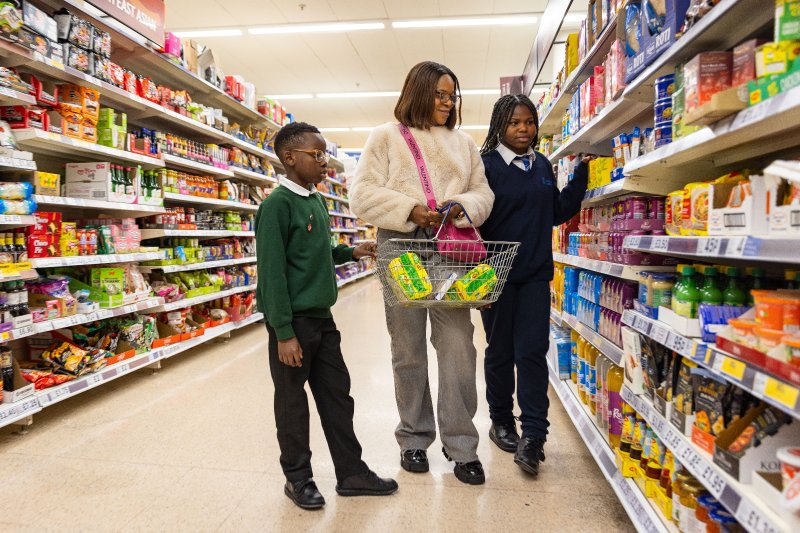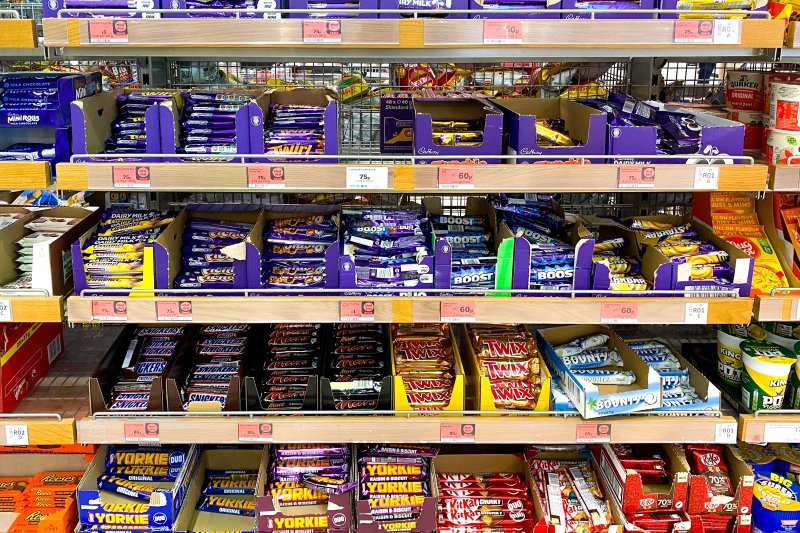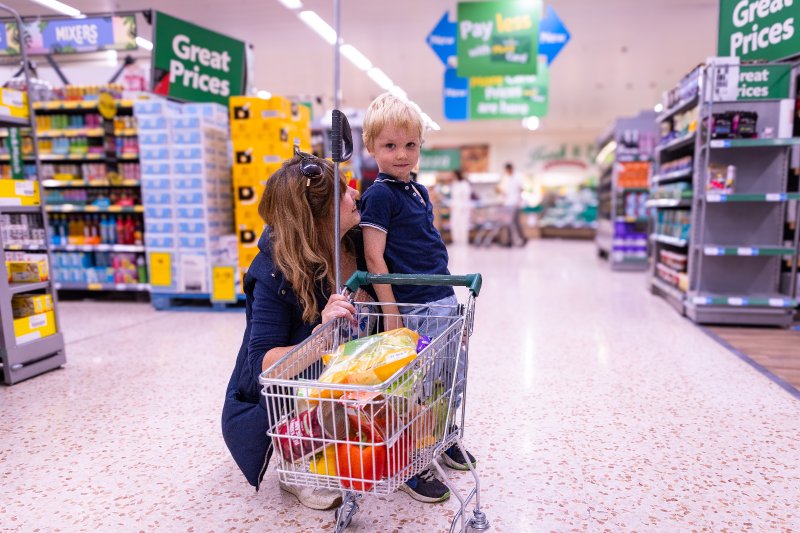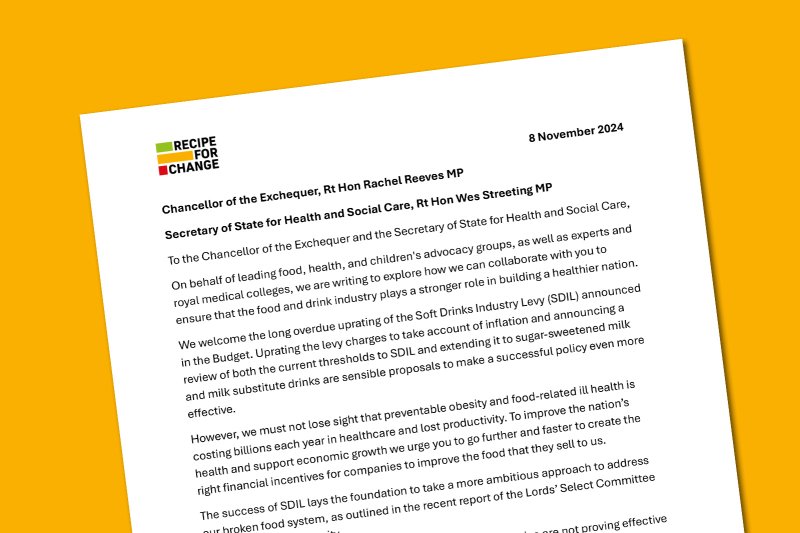News
Top researchers demand Government action to stop the sugar flood in children’s food
To mark Sugar Awareness Week, Action on Sugar at Queen Mary University of London, who are a part of the Recipe for Change coalition, have unveiled alarming new data on the high levels of sugar and calories in popular sweet snacks.
The researchers found:
- Cakes, chocolate, and biscuits continue to drive excessively high sugar intake amongst children, despite the Government’s voluntary Sugar Reduction Programme for businesses.
- Just a single cake at lunch in school, a chocolate bar on the way home, and one or two biscuits after dinner can add up to 1,326 kcals and 92.5 grams of sugar in a single day – that’s nearly 23 teaspoons of sugar!
- They call to expand the Soft Drinks Industry Levy to cover foods that are driving excess sugar intake in children and ban cakes and biscuits in schools.
A recent survey of individually packaged or portioned sweet snacks reveals that a typical combination – such as a cake, a chocolate bar, and one or two biscuits consumed over the course of a day – can pack an astounding 1326 calories and 92.5 grams of sugar. This amount is three times the recommended daily sugar limit for children aged 11+.
In fact, the data also shows that 61% of cakes, 63% of chocolate confectionery and 44% of biscuits surveyed equal or exceed one-third (10g) of the daily sugar limit for children aged 11+ per serving.
As cakes, chocolate confectionery, and biscuits remain major contributors to high sugar intake among children – and with limited success from the government’s voluntary Sugar Reduction Programme – Action on Sugar is urging the government to extend the successful mandatory Soft Drinks Industry Levy to include these and other high-sugar foods. Revenue from this expanded levy could then fund initiatives aimed at improving children’s health.
Recent polling for the Recipe for Change campaign has also indicated that only 13% of the British public believe food companies will make their food healthier without Government intervention, and 68% would support an industry levy being expanded beyond soft drinks to other sugary and salty food where the money raised supported children’s food and health initiatives.
Action on Sugar also highlight the current School Food Standards may be driving children to exceed their daily sugar limits by allowing cakes and biscuits at lunchtime. The group is also calling for a ban on such sugary foods that result in children exceeding their maximum daily limit of sugar at school, alongside the creation of healthier local food environments around schools to help young people eat better.
In the survey of cakes (185), chocolate confectionery (92), and biscuits (360), the worst combination ranked by calories per serving was one of the Sainsbury's Taste the Difference Free From Gluten Blueberry Muffins, which contains 361 kcals and 28.5g of sugar (∼7 teaspoons), combined with the Ritter Sport White Whole Hazelnuts containing 583 kcals and 44g of sugar (∼11 teaspoons) and two Aldi Specially Selected Orkney Caramel Shortbreads containing 382 kcals and 20g of sugar (∼5 teaspoons).
Although lower-calorie and lower-sugar options are available, there are concerns about how effectively our current food environment promotes these lower-sugar options.
These findings highlight the urgent need for decisive government action to reduce excessive sugar consumption amongst young people, and the data also emphasises the failure of the Government’s voluntary Sugar Reduction Programme which aimed to reduce sugar by 20% in key product categories by 2020. The programme fell far short of its target, achieving minimal reductions in categories like cakes (-3.2%), biscuits (-3.1%), and chocolate confectionery (-0.9%) – a stark contrast to the 20% reduction needed to make a meaningful impact on children’s health. In comparison, the Government’s mandatory Soft Drinks Industry Levy achieved a significant 34.3% reduction in sugar content.
Despite commitments in the government’s 2016-2018 childhood obesity plan to update the School Food Standards in line with the revised sugar guidelines, this update has yet to be implemented. In fact, recent research shows secondary schools in England are not fully complying with the School Food Standards, likely due to lack of external monitoring and funding. The Department for Education must now revise the School Food Standards and ensure schools including academies are complying by providing support. This was highlighted in the recent House of Lords report too, where they called for the immediate revision of the standards.
Dr Kawther Hashem, Head of Research and Impact at Action on Sugar based at Queen Mary University of London says:
“The truth is, sugary foods are almost inescapable for most children – they’re readily available in schools and often the easiest choice on the way home. We’re simply not doing enough to support children in keeping their sugar intake within recommended guidelines. We have a duty to every child to make school a sanctuary from unnecessary sugar, so they can grow up healthier, stronger, and free from the risks of diet-related disease.”
Kate Howard, Children’s Food Campaign Coordinator at Sustain says:
The voluntary sugar reduction programme has been ineffective when compared to the mandatory Soft Drinks Industry Levy (SDIL), and this new research shows how pressing the need is to expand SDIL to get companies to change their recipes and produce healthier versions of their food. This measure has been called for by the National Food Strategy, the Times Health Commission, the Lord’s Committee Inquiry on Food, Diet and Obesity, and is supported by the public. The Government needs to make 2025 the year they listen to these calls and build a healthier food industry.
Read Action on Sugar's full findings here
Published 19 Nov 2024

